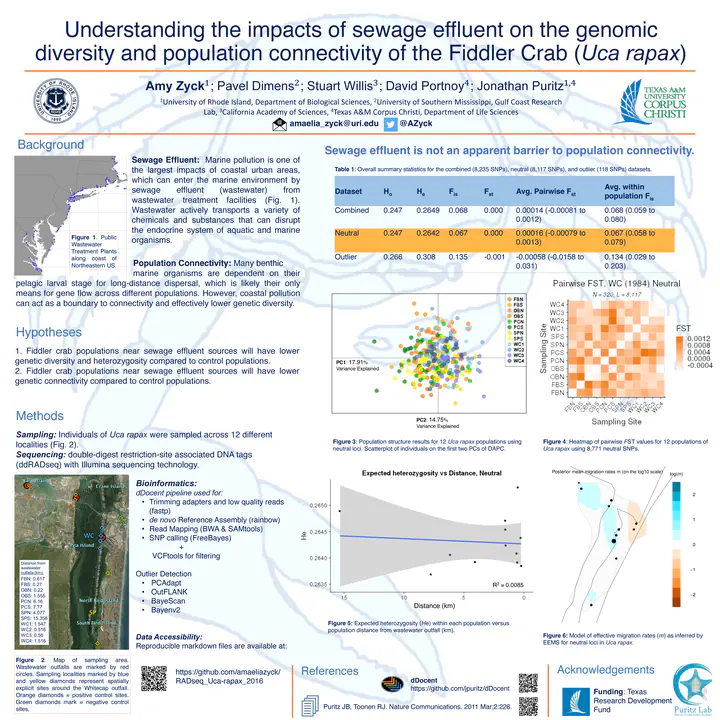Fiddler Crabs
 Poster from Evolution 2019
Poster from Evolution 2019Coastal urban areas, home to over 50% of the population in the USA and over 60% of the population of the world, are a major source of marine pollution in coastal environments. This pollution enters the marine environment via either sewage effluent (wastewater) from wastewater treatment facilities, or runoff (stormwater) from rivers and municipal drainage systems. Stormwater and wastewater actively transport a variety of chemicals and substances that are known to be harmful to marine organisms. However, few studies have focused on the biphasic life cycle of marine organisms, that consists of a benthic, low migrating adult stage with low dispersal potential and a pelagic larval stage that spends highly variable amounts of time in the water column. Species with this life cycle are dependent on the early life stages for long-distance dispersal to increase gene flow across populations. One population connectivity study found that stormwater and wastewater are effective barriers to larval dispersal and significantly reduce gene flow between populations in a sea star species in coastal California (Puritz & Toonen 2011).
To characterize the evolutionary impacts of sewage effluent on other marine intertidal communities, an experiment was conducted on the mudflat fiddler crab (Uca rapax), a benthic, demersal species that is reliant on pelagic larvae for dispersal. The crabs were sampled near three different wastewater outfalls in the City of Corpus Christi, and at two control sites that are not likely influenced by sewage effluent. This study will determine if:
Fiddler crab populations located near sewage effluent sources will have lower genetic diversity and heterozygosity compared to the control populations. Fiddler crab populations located near sewage effluent sources will have lower genetic connectivity compared to the control populations Candidate genes under selection in response to wastewater will have similar variant frequencies among populations near sewage effluent sources and different variant frequencies among control populations.